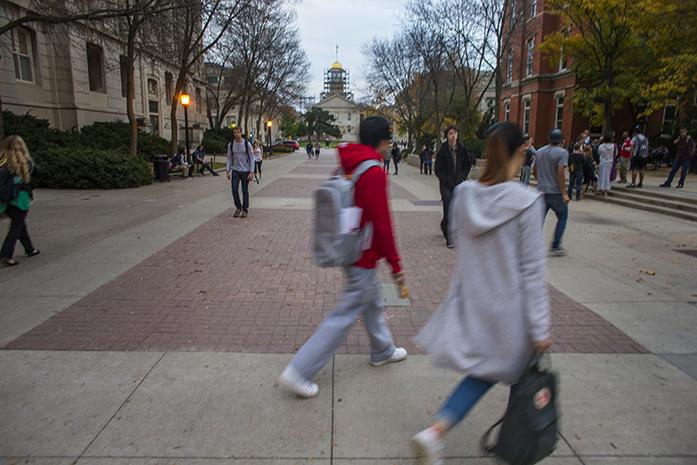Regents mull tuition increase
After student leaders voice concerns over increasing nonresident tuition rates, the state Board of Regents may vote to increase tuition in December.
October 20, 2016
CEDAR FALLS — For a second time since the tuition freeze thawed in December 2015, the state Board of Regents discussed raising tuition by a base rate of 2 percent for resident undergraduates at all three public regent universities.
The possibility of tuition hikes at the University of Iowa, Iowa State University, and the University of Northern Iowa comes on the heels of the regents’ approval at their September meeting of a “dynamic” two-year budget model for state appropriations as well as tuition.
With this plan, the regents said the hope was to provide predictability for students. The regents also approved a request for an additional 2 percent in state appropriations for fiscal 2018.
Part of the request for a tuition increase involves a sharper increase in tuition for UI students enrolled in the College of Engineering.
In addition to the base rate, the engineering school proposes to increase tuition by $1,000 for all first-year students, with second-year resident student tuition being raised $1,316 and second-year nonresident tuition being hiked $1,546, according to regents documents.
This proposal also involves varying rates of tuition for nonresident undergraduate students in all disciplines at the three public regent institutions.
In an interview with The Daily Iowan, UI Student Government President Rachel Zuckerman said the state Legislature and the regents remain too focused on ensuring affordability for Iowa resident undergraduates, even with the implementation of the two-year budget model.
“Out-of-state students and graduate and professional students continue to feel the brunt of every increase,” she said. “All of our students deserve — regardless of where they are from — an affordable education from the University of Iowa.”
Hunter Flesch and Cole Staudt, the student-government presidents at the University of Northern Iowa and Iowa State University, respectively, also warned against continuing to raise tuition rates disproportionately for nonresident students.
Staudt highlighted the racial and ethnic diversity nonresident students bring to a state with predominantly white residents, which he said allows Iowans to “explore new perspectives.”
“The contributions that nonresidents make to the educational experience is valuable,” he said. “If we can keep the cost [for] nonresidents low, we will be able to continue to attract students from across the world in the middle of Iowa, which helps every permanent resident of Iowa.”
Regents President Bruce Rastetter said peer institutions do not welcome as many nonresidents because of enrollment caps, but Iowa’s regent universities see higher nonresident enrollment as an “excellent way to … have a revenue stream.” He acknowledged the taxpayers’ contributions to funding the state universities as a reason for hesitating to increase resident tuition rates.
“The parents and grandparents that have students at Iowa have paid for these universities in their taxes for decades,” he said.
Higher-paying nonresidents contribute to a large portion of tuition revenue, however. The Daily Iowan previously reported that state appropriations provide one-third of budget revenue for the UI, while tuition provides most of the rest.
During an oral report given at the meeting, UI President Bruce Harreld affirmed the necessity of a tuition increase to maintain the quality of education students receive.
“I firmly believe … that without these additional resources, the ability of our students to receive the education they deserve will be severely compromised,” he said.
Zuckerman said concerns regarding the growing cost of higher education is not unique to the UI, but instead, it is part of a national “armed race” in higher education in which universities continue to raise tuition often for the sake of keeping faculty salaries competitive with other institutions.
Changes must occur at a federal level, Zuckerman said, before students are “priced out of education.”
“We’re being put in this situation where we have to constantly increase tuition to keep up with other universities who are increasing tuition,” she said. “No one university can fix this issue on its own.”



